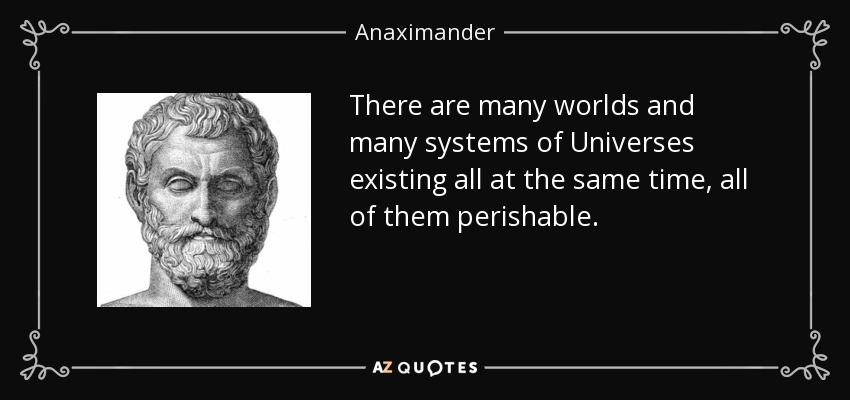Heraclitus of Ephesus (c. 535 - 475 B.C)
Life
Philosophical ideas
1) Flux and Unity of opposites :
"All things come into being through opposition and all are in flux like a river."
"Though the logos is as I have said, men always fail to comprehend it, both before they hear it and when they hear it for the first time. For though all things come into being in accordance with this logos, they seem like men without experiences, though in fact they do have experience both of words and deeds such as I have set forth, distinguishing each thing in accordance with its nature and declaring what it is. But other men are as unaware of what they do when awake as they are when they are asleep. " ~Heraclitus
In Greek, Logos means `the word' but also means `to speak' and can also refer to `conveying thought' and the Logos of Heraclitus may most neatly fit the latter meaning. The logos is natural, universal, rational thought by which universe came into being by which it is maintained .The Logos constantly `conveys thought' to human beings but the message is missed because of the consistent refusal of people to recognize the natural order in their own lives.
“Men forget where the way leads and what they meet with every day seems strange to them. We should not act and speak like men asleep.”
Heraclitus compared most people understanding to those that of asleep. Only the philosopher those who pursue truth is fully awake and fully alive. He quotes "Thinking is a sacred disease and sight is deceptive." "It is necessary to take what is common as our guide, however though this is universal, the many lives as if each individual has his own private wisdom."
"Every one of us gladly turns away from his problems; if possible, they
must not be mentioned, or, better still, their existence is denied. We wish to
make our lives simple, certain, and smooth, and for that reason problems are
taboo. We want to have certainties and no doubts - results and no experiments-
without even seeing that certainties can arise only through doubt and results
only through experiment."
For Heraclitus, logos is an ever-living fire, which is observable in nature and yet human beings resist the natural movement of life and cling to what is known and considered safe. This clinging is unnatural and one's inability to embrace change and accept conflict as natural and necessary part of one's life causes pain and disappointment one so often experience. One causes the problems in life through refusal to accept life for what it is -- flux.
“People do not know how what is at variance agrees with itself. It is an attunement of opposite tensions like that of the bow and the Iyre." Heraclitus believes that an unapparent connection links many things more firmly than an apparent and concrete one. He observes that "Nature loves to hide" stating that a hidden and even secret harmony exists, which is more precious than an obvious one and an unapparent harmony is stronger than an apparent one. A harmony exists even if there is an apparent competition between the opposites, since any competition conceals or hides the attraction and attraction induces union. Thus, the nature likes to hold its secrets.
2) Wisdom (Theory of Knowledge or
Epistemology) and Moral Philosophy:
"Much learning does not teach understanding."
"A knowledge of many things does not teach one to have intelligence but those who love wisdom must investigate many things." The profound knowledge based on experience and gained by enquiry into a wide spectrum of things may help in uncovering the reality and truth which mostly lie concealed. Wisdom is apart from the mediocrity, it is isolated from the exterior influences, is a unique experience. However, real knowledge, the absolute truth is not human but divine since human wisdom is inefficient even primitive in comparison with the divine one.
"Wisdom is the oneness of mind that guides and permeates all things." Those who speak with insight should base themselves firmly on that which is common to all. Thus, wisdom consists in telling truth, as well as behaving and acting in accordance with the real nature of things. Heraclitus says, "We are most nearly ourselves when we achieve the seriousness of a child at play."
All people ought to know themselves, being even-minded, since all humans have the capacity to self-knowing and sound thinking.Otherwise, it is prudential and rational for men to conceal their ignorance.
3) Existential Principles:
Repetition and Relativity
The world as a whole is an eternal repeated sequences of cycles, each of which emerges out of fire and ends in fire. He quotes, "this world .... ever was, and is, and shall be an ever-living fire, in measures being kindled and in measures being going out." By cosmic rule, a day yields night and a night yields day. The summer yields winter and the winter yields summer. All things change and there is a continuous repetition of physical phenomena.
Heraclitus claims that relativity dominates on every phenomena. Thinks are whole and not whole, being brought together and been separated.Some are consonant and some dissonant. The Universe is a continuous state of dynamic equilibrium, where as at the same time all things are one. For example , the road up and down is one and the same. In the circumference of a circle beginning and end are the same. Even good and ill are one. Everyday seems equal to the rest.He quotes,
"Immortals are mortals, mortal are immortals, living their death, dying their life.""the universe is divisible
and indivisible, generated and ungenerated, mortal and immortal, Word and
Eternity, Father and Son, God and Justice."
According to heraclitus, The fire, light and truth are always unchanged and eternal since they are original and genuine in their existence. The sun which is an everlasting fire, illuminates the entirety, travels the heaven continuously and never oversteps its measures in its course thus, plays a fundamental role in timing, setting the boundaries of the morning and evening. Timing is a function of lightning, personal time or interior time is changeable parameter which depends upon the mental condition of the person. The spiritual light illuminates the mind on the rhythms of of personal internal life. The lack of consciousness entails lack of personal time and profound dementia entails timeless time. If man cannot see the internal sun, he would live in darkness. Thus, seeing is grasping in light whereas the spiritual seeing is a grasping in truth. Eyes are more accurate witness of the reality than ears, however both of them are poor witnessess for men who possess uncomprehending souls.Human being is the one who can kindle fire, who understands the power of light and who is able to touch the truth and be illuminated by divine light.
4) Soul

For Heraclitus,
2) Wisdom (Theory of Knowledge or
Epistemology) and Moral Philosophy:
3) Existential Principles:
Repetition and Relativity
"the universe is divisible
and indivisible, generated and ungenerated, mortal and immortal, Word and
Eternity, Father and Son, God and Justice."
the soul is a part of the omnipresent logos, where the essence of the individual soul is to be found in its ability to get as close to logos as possible. This soul is fiery in nature, generated out of other substances, but is limitless in dimension. "A dry psyche, a soul liberated from passions, is wiser and the best". Psyche is the source not only of life, but also of reason and rational control. The soul should be purified from passions vices and particularly from insolence since there is greatest need to extinguish insolence than a blazing fire, but we must admit that it is always difficult to fight passion. He quotes, "It is difficult to fight against pleasure than anger."












